Greetings, skincare aficionados! Today, let’s delve into a topic generating considerable interest on platforms such as TikTok – Eucerin. My purpose here is to provide an analysis based on personal usage and experiences, shedding light and finding the answer to ‘Is Eucerin cruelty free?’, examining its historical evolution, ingredient composition, corporate affiliations, and the brand’s stance on cruelty-free and vegan formulations.
History of Eucerin
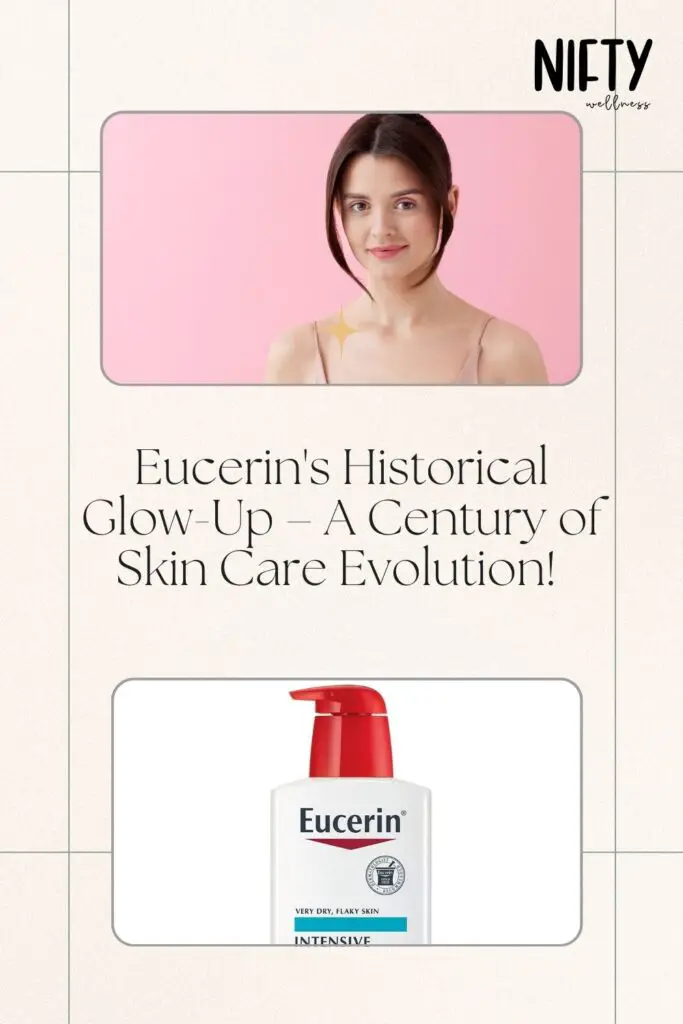
Established in 1902 by Dr. Issac Lifschultz, Eucerin has traversed a century-long trajectory from its origins as a remedy for scrapes to evolving into a comprehensive skincare line.
The brand’s evolution culminated in the creation of Aquaphor in 1925, marking a significant milestone in its product offerings.
As we traverse through the historical narrative, it becomes evident that Eucerin has weathered the test of time, adapting to the evolving landscape of skincare needs. From its humble beginnings to becoming a household name, Eucerin’s legacy is intertwined with the changing dynamics of skincare practices.
Contemporary Realities
However, the present demands an examination of the brand’s current stance on crucial ethical considerations. A notable concern arises regarding Eucerin’s commitment to cruelty-free practices. Despite its enduring presence, a regrettable reality surfaces – Eucerin does not align with cruelty-free standards. The brand’s utilization of either third-party testers or compliance with animal testing laws in specific regions presents a dichotomy, challenging consumers to reconcile historical reputation with contemporary ethical expectations.
Check out our latest blog Is Jergens Cruelty Free? Unveiling the Ethical Side of Skincare. Uncover the ethical side of Jergens – is it truly cruelty free?
Scrutinizing Key Ingredients – Going Beyond the Surface
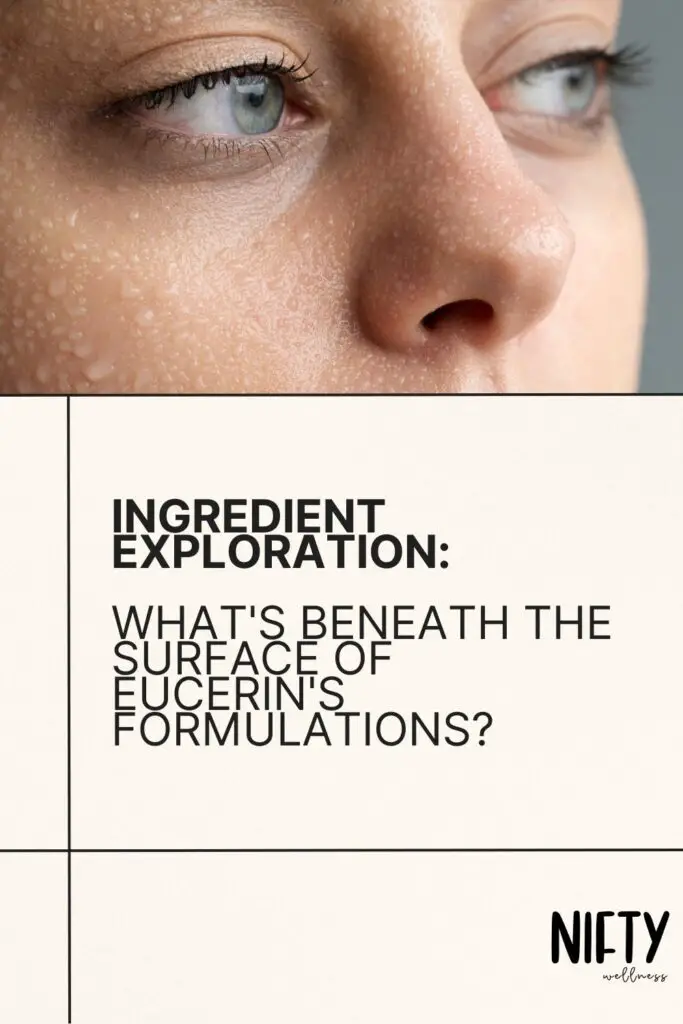
Diving into the core of Eucerin’s formulations, particularly its flagship product, Aquaphor, is essential for a comprehensive understanding. While the efficacy of petroleum-based elements in skincare is well-established, a nuanced examination reveals a more complex picture. Beneath the surface, the inclusion of animal-derived ingredients within Aquaphor raises ethical considerations.
The juxtaposition of effective petroleum-based components and animal-derived elements prompts contemplation on balancing skincare efficacy and ethical sourcing. This nuanced exploration underscores the importance of transparency in ingredient disclosure, urging consumers to make informed choices aligned with their values.
Which company owns Eucerin?
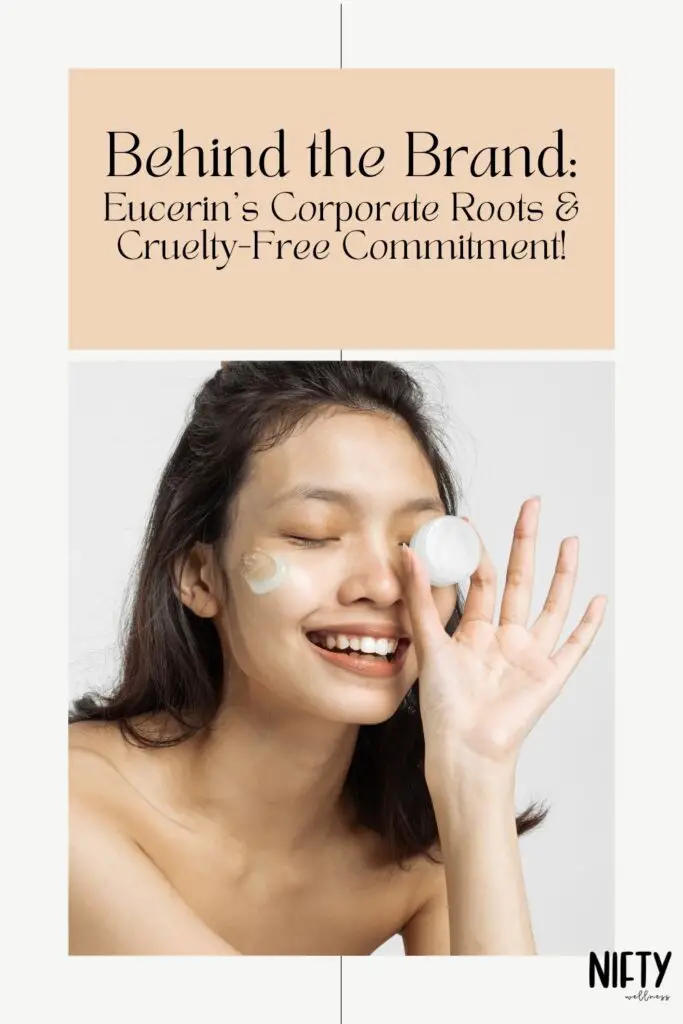
Before finding out, ‘Is Eucerin cruelty free?’ We must dig a little deeper and go for a background check. While Eucerin, a well-regarded skincare brand, is part of the Beiersdorf family, a crucial distinction must be emphasized – Beiersdorf, the parent company, is committed to cruelty-free practices. This distinction is pivotal as it allows consumers to discern between Eucerin’s individual practices and those of its parent company.
Understanding the corporate dynamics reveals that the Eucerin company exists as an independent entity within the Beiersdorf family. This distinction serves to highlight that, while Eucerin may not be cruelty-free, its parent company, Beiersdorf, upholds ethical standards by adhering to cruelty-free practices.
In the vast beauty industry, this clarity is a guiding light for consumers, enabling them to make choices that resonate with their values. It underscores Beiersdorf’s unwavering commitment to cruelty-free practices, both independently and in its affiliation with Eucerin. This assurance empowers consumers to navigate the beauty landscape with confidence, knowing that ethical principles are at the forefront of both Beiersdorf and Eucerin’s endeavours.
Formal Evaluation of Cruelty-Free Allegiance
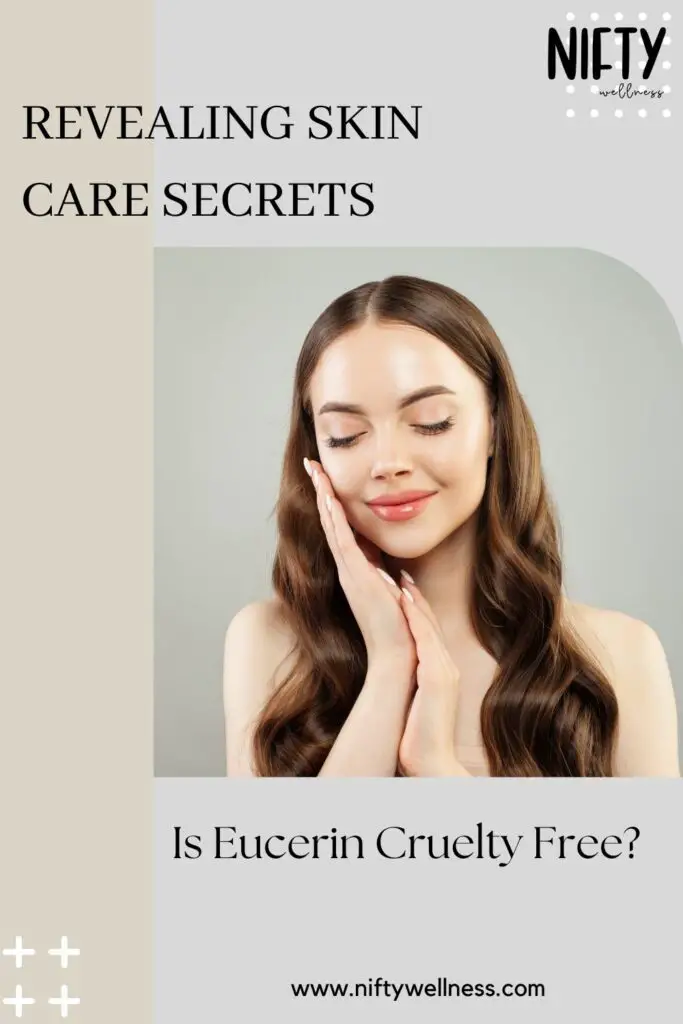
The pivotal questions persist – Is Eucerin cruelty free? Does Eucerin test on animals?
Regrettably, the path to a definitive answer is not straightforward. Despite Eucerin’s rich historical resonance, a nuanced examination reveals its association with third-party testers and compliance with animal testing laws in specific regions. This complex scenario diminishes Eucerin’s standing in the cruelty-free domain, raising questions about the ethical considerations inherent in its product development and testing practices.
While the brand claims to try alternate methods, however, as per their official statement, Eucerin allows animal testing if required by law. Recognizing that the commitment to cruelty-free principles extends beyond individual products to encompass the brand’s overarching ethos is essential. In pursuing ethical consumption, consumers grapple with the dual realities of a brand’s historical legacy and its present-day practices.
Delving into Vegan Considerations
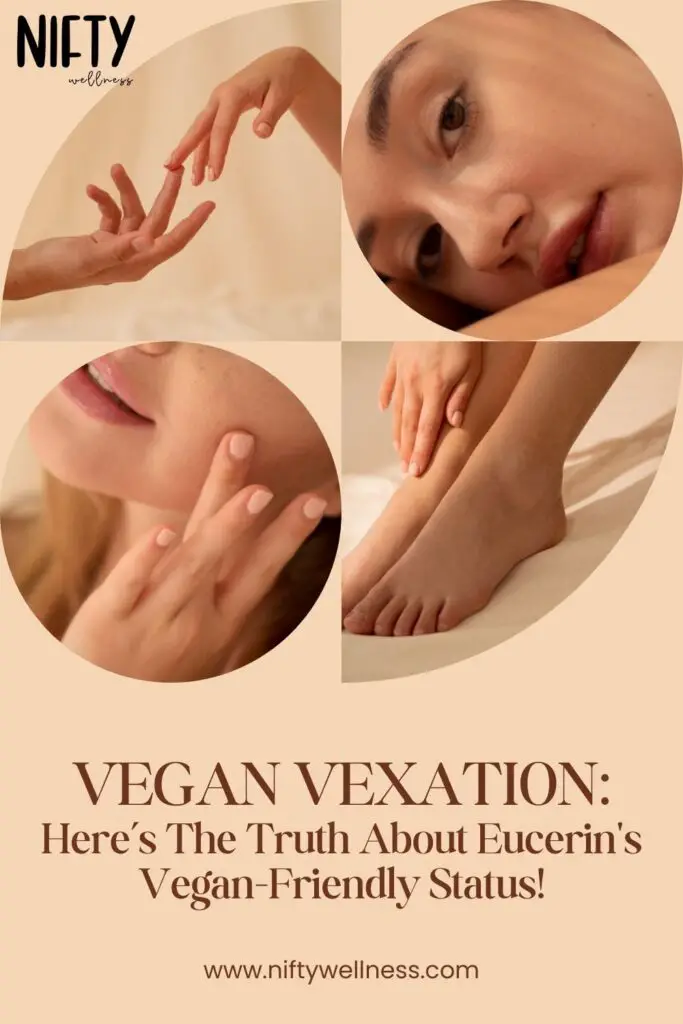
In tandem with concerns about cruelty-free practices, the vegan aspect of skincare emerges as a focal point. So, ‘Is Eucerin vegan and cruelty free?’ While we now know the answer regarding Eucerin animal testing policy, let’s unpack. ‘Is Eucerin vegan?’
Eucerin, unfortunately, does not align with vegan principles. The incorporation of animal-derived elements into its formulations places it outside the realm of vegan-friendly skincare.
Understanding the nuances of ingredient sourcing becomes paramount for individuals with ethical considerations. The dual exclusionary stance adopted by Eucerin – not only in terms of cruelty-free status but also with respect to vegan principles – prompts consumers to explore alternative brands that more closely resonate with their values.
Cruelty-Free Alternatives
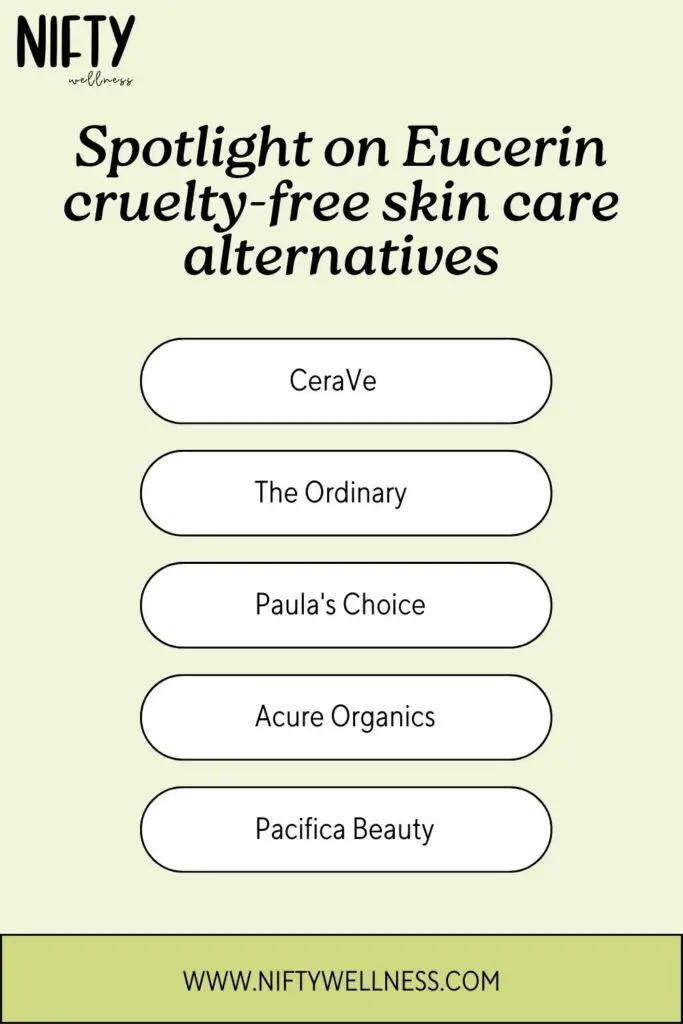
Choosing cruelty-free alternatives in skincare is vital for ethical and compassionate consumerism. Consumers actively contribute to ending animal testing and promoting a more humane beauty industry by opting for products from brands committed to cruelty-free practices. It aligns with values of kindness, environmental responsibility, and ethical sourcing. Here’s a list of noteworthy cruelty-free alternatives:
CeraVe
Renowned for its gentle yet effective skincare solutions, CeraVe is celebrated for its cruelty-free alternatives. Their hydrating cleansers and moisturizers are formulated to address various skin concerns, providing a cruelty-free option for those seeking reliable and compassionate skin care.
The Ordinary
The Ordinary stands out for its commitment to cruelty-free beauty. Their Hyaluronic Acid serum, among other offerings, has gained popularity for delivering effective results without compromising on ethical principles, making it a go-to choice for conscious consumers.
Paula’s Choice
Recognized for its evidence-based skincare formulations, Paula’s Choice is equally committed to cruelty-free practices. Their diverse range of skincare products, from cleansers to serums, reflects a dedication to providing effective solutions without subjecting animals to testing.
Acure Organics
Acure Organics places a strong emphasis on cruelty-free and sustainable skincare. Acure Organics caters to those who prioritize ethical sourcing and cruelty-free alternatives in their beauty routines with diverse products, including cleansers and serums.
Pacifica Beauty
Pacifica Beauty offers a range of effective cleansers and moisturizers and distinguishes itself through its ethical practices. Committed to cruelty-free beauty, Pacifica Beauty aligns with values of kindness and environmental responsibility, providing consumers with compassionate choices for their skincare needs.
Read our new blog Is Vanicream Cruelty Free? Unveiling the Ethical Beauty Standards. Explore the world of ethical beauty with Vanicream.
Concluding Thoughts Based on Personal Exploration
In my personal skincare journey, Eucerin has played a significant role. However, the revelation regarding its animal testing practices and non-vegan ingredients prompts a reevaluation. As informed consumers, we collectively strive for transparency and a commitment to ethical standards within the skincare industry.
While Eucerin offers commendable attributes, pursuing an ethically driven skincare routine may necessitate exploration beyond its confines. As we embark on this collective journey, sharing insights and perspectives can enrich our understanding of the ethical landscape in skincare.
Frequently Asked Questions (FAQs)
Is Eucerin completely free of animal testing?
No, Eucerin is not completely free of animal testing. They either use third-party testers or comply with animal testing laws in certain regions where they intend to sell their products. This means that animals may still be involved in testing Eucerin products, which might not align with cruelty-free standards. It’s essential to consider these practices if you prefer entirely cruelty-free skincare products.
How can consumers verify Eucerin’s cruelty free status?
To verify Eucerin’s cruelty-free status, consumers can check official cruelty-free certifications from organizations like Leaping Bunny or PETA. Additionally, examining the brand’s official statements on its website or contacting customer support for detailed information can provide insights. Keep an eye out for mentions of third-party testing and adherence to animal testing laws, which may impact the brand’s cruelty-free standing.
Does Eucerin use cruelty free alternatives for testing?
No, Eucerin does not exclusively use cruelty-free alternatives for testing. While they express a commitment to minimizing animal testing, they may still engage in it when required by specific laws in certain regions. Consumers interested in cruelty-free alternatives should carefully consider Eucerin’s testing practices and explore brands that prioritize cruelty-free testing methods without involving animals.
What impact does choosing cruelty-free skincare have on the environment?
Choosing cruelty-free skincare positively impacts the environment. Cruelty-free brands typically avoid harmful testing practices on animals, reducing environmental harm. Additionally, these brands often prioritize ethical and sustainable sourcing of ingredients, contributing to eco-friendly practices. By supporting cruelty-free skincare, consumers promote a more compassionate and environmentally conscious beauty industry, fostering a healthier planet for future generations.
How can consumers actively support the cruelty-free movement?
Consumers can actively support the cruelty-free movement by choosing products from brands certified by organizations like Leaping Bunny or PETA. Checking labels for cruelty-free logos, researching brands’ animal testing policies, and sharing information with others raise awareness. By making informed purchasing decisions and encouraging friends and family to do the same, consumers contribute to the growing demand for ethical and cruelty-free products, fostering positive change in the beauty industry.
